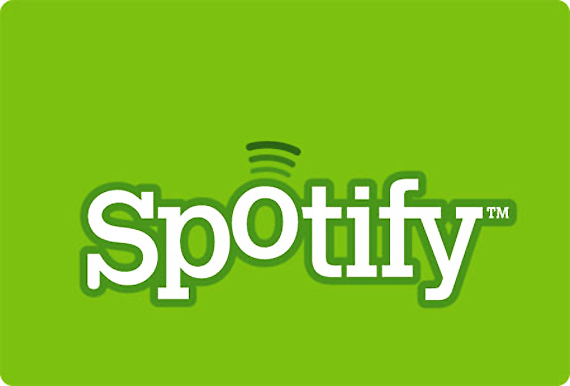SOPA, PIPA, ACTA, and many more laws have sparked debate around copyright infringement. Pirates state that the prices for content are too damn high, while content creators say they really need the money to keep the content coming. But the reason most people download, is not as much about the money, as it is about the ease of it. So instead of fighting the pirates, the movie and music industry should listen to them, and see how they can help, it's the old idea of customer relations management, you see what your customers want, and provide it. To help move the content industry towards this situation, I'd like to give a shoutout to the companies that facilitate this process.
Spotify!
Spotify is an awesome app, if you haven't been living under a rock (I like cliché expressions), for the last year
or so, you've probably heard abot it. You can listen to any music you want from your computer, and for a small fee, also on your mobile devices and without ads. For me this is the best example of making it easier to be legal. Since I've started using spotify, I haven't illegally downloaded a single song, simply because it's much quicker to open up spotify and play it. I no longer have to go through the hassel of opening up my torrent client, looking for a torrent with a good seeder to leacher ratio, clicking the download button, and hoping it'll be a good quality torrent.Netflix
Netflix is not yey available in Belgium, so I'm unable to say much about it. But the streaming of movies sounds like an easier thing to do than look for a version on the pirate bay that doesn't have japanese subtitles, or worse, is dubbed in German. I wish content creators weren't so picky about where their content could be viewed. Maybe I'm just ignorant of some facts, but I don't get the point. If I watch a movie in Belgium on netflix, and they get the money for it, what's the problem?
YouTube's content id
Youtube is a great way to share content, including content you don't have the right to redistribute. What I like about Youtube's way of handling this, is that they don't just allow copyright holders to take it down, but also to make use of theseuploads of their work. The claim many pirates have made, that these distributions of content also promote the content are valid, so content creaters can benefit a lot from just leaving them up on youtube, and making part of the money they would have made, by getting part of the revenue from the ads on youtube, and yes, I know google takes a cut of that too, but In my opinion, they deserve it fror creating this system.
